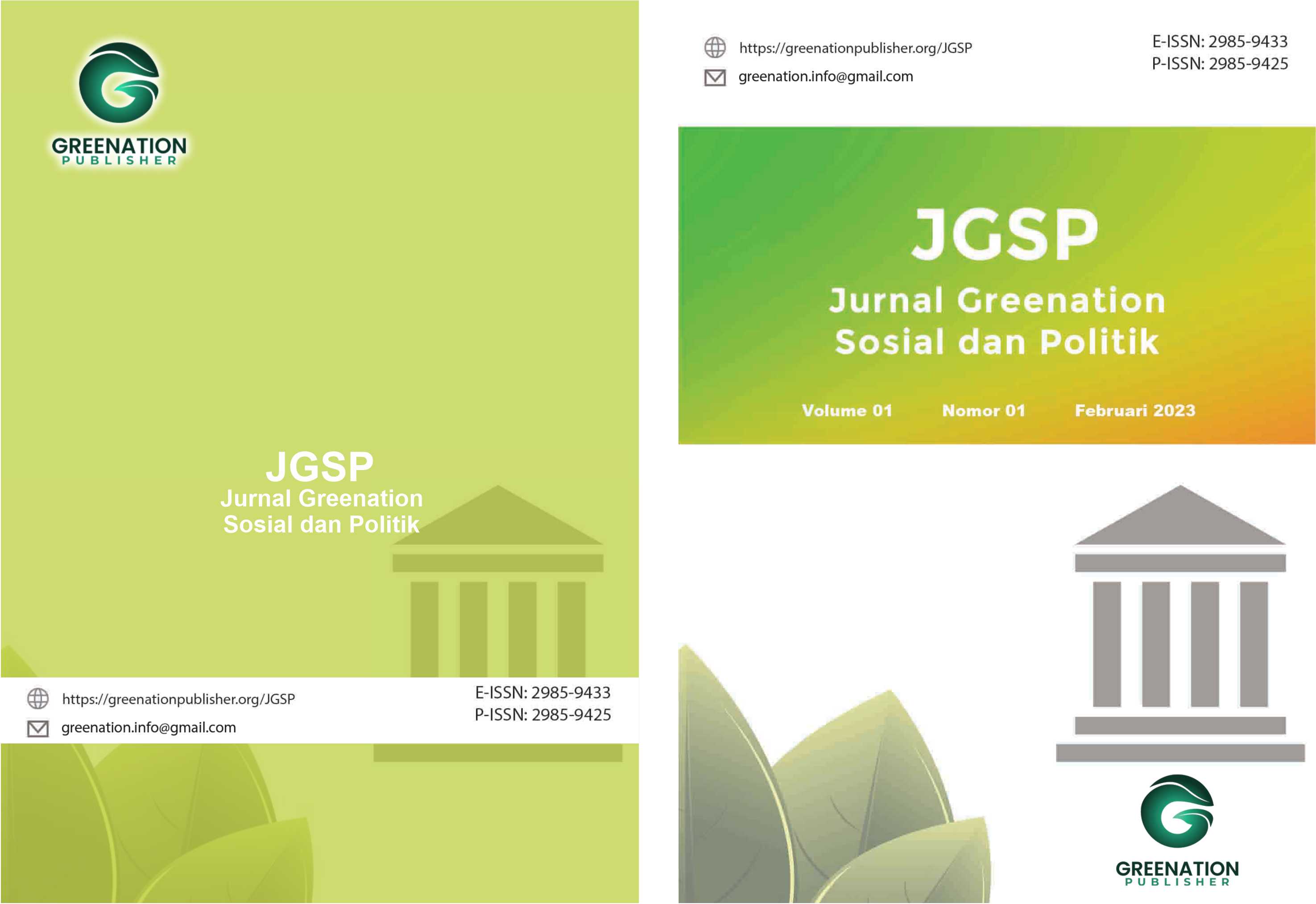Legal Implications of the Application of Restorative Justice to Narcotics Crimes in Order to Realize Restorative Justice and Rehabilitation for Perpetrators
DOI:
https://doi.org/10.38035/jgsp.v3i3.436Keywords:
restorative justice, narcotics crime, rehabilitation, legal implications, sentencingAbstract
Narcotics crime is one form of offense that has systemic impacts on public health, security, and order. The conventional penal system, which tends to focus on imprisonment, has not been entirely effective in addressing the root problems of narcotics abuse, especially among users. As an alternative in this situation, the restorative justice method seeks to rebuild the community, the victim, and the criminal via communication and rehabilitation. In order to achieve restorative justice and offenders' rehabilitation, this study looks at the legal ramifications of applying restorative justice to drug-related offenses. Law Number 35 of 2009 about narcotics, Supreme Court Regulation Number 4 of 2010, Attorney General Regulation Number 15 of 2020, and Law Number 1 of 2023 about the Criminal Code are all reviewed using a normative method. The study's findings demonstrate that restorative justice is only appropriate for drug users who meet specific requirements, such as not being a recidivist and having a limited amount of evidence. The application of this approach has a positive impact on reducing overcrowding in correctional institutions and fulfilling the offender’s human rights to receive rehabilitation. However, there are still obstacles such as the lack of explicit regulations in the Narcotics Law and the limited availability of adequate rehabilitation facilities. Policy reformulation and the strengthening of synergy among law enforcement officers are important steps in expanding the comprehensive implementation of restorative justice in the future.
References
Abas, I. W. (2022). Problematika Pelaksanaan Asesmen Terpadu Dalam Proses Penegakan Hukum Penyalahgunaan Narkotika. Philosophia Law Review, 2(1), 30-49.
Azizah, A. S. (2023). Prinsip Keadilan Restoratif Dalam Penghentian Penuntutan Perkara Pidana Berdasarkan Peraturan Jaksa Agung Nomor 15 Tahun 2020. Jurnal Hukum, Politik dan Ilmu Sosial, 2(2), 243-264.
Fajar, M. (2022). Penerapan Rehabilitasi Medis dan Rehabilitasi Sosial Atas Penyalahgunaan Narkotika Bagi Diri Sendiri. Jurnal Sosial Teknologi, 2(5), 406-417.
Fardha, K. V. (2023). Perkembangan Teori-Teori Hukum Pidana. INNOVATIVE: Journal Of Social Science Research, 3(5), 3982-3991.
Hafid, N. S. (2025). Penerapan Teori Pidana dalam Pencegahan dan Penanggulangan Kriminalitas: Studi Kasus dan Tantangan Implementasi. Legalite: Jurnal Perundang Undangan dan Hukum Pidana Islam, 10(1), 85-104.
Hariyawan, A. S. (2025). Analisis Yuridis Pasal 112 dan Pasal 127 Undang-Undang Nomor 35 Tahun 2009 tentang Narkotika: Upaya Reformulasi untuk Menjamin Kepastian Hukum. Journal of Contemporary Law Studies, 2(2), 141-152.
Hikmah, F. &. (2023). Konvergensi Konsep Retribusi dan Rehabilitasi dalam Filsafat Hukum Pidana Kontemporer Indonesia. CREPIDO, 5(2), 217-228.
Maaroef, Y. (2024). TINJAUAN YURIDIS TERHADAP REHABILITASI NARAPIDANA NARKOTIKA MENURUT ASAS ULTIMUM REMEDIUM HUKUM PIDANA. Justitia Jurnal Ilmu Hukum, 18(2), 251-267.
Putri, N. K. (2024). Pengaruh teori rehabilitasi terhadap kebijakan pemidanaan di Indonesia: Tinjauan pustaka. Jimmi: Jurnal Ilmiah Mahasiswa Multidisiplin, 1(2), 210-224.
Romli, R. &. (2025). EFEKTIVITAS REHABILITASI SEBAGAI ALTERNATIF PEMIDANAAN BAGI PENYALAHGUNA NARKOBA DI INDONESIA. Journal of Innovation Research and Knowledge, 4(9), 6877-6886.
Santoso, I. &. (2023). PENERAPAN REHABILITASI TERHADAP KORBAN PENYALAHGUNAAN NARKOTIKA BERDASARKAN UNDANG-UNDANG NOMOR 35 TAHUN 2009 TENTANG NARKOTIKA DALAM PERSPEKTIF TEORI REHABILITASI. Journal of Syntax Literate, 8(9).
Sari, G. N. (2024). Tinjauan filosofis keadilan restoratif dalam lensa teori keadilan. Hukum dan Politik dalam Berbagai Perspektif, 3, 253-291.
Sihombing, L. A. (2024). Restorative Justice, Kejahatan, Hukuman, Dan Peradilan Pidana: Sebuah Analisis Kesejarahan, Peluang Dan Tantangan. UNES Law Review, 6(3), 8902-8911.
Subroto, M. &. (2025). Analisis Program Community Based Correction dalam Sistem Pemasyarakatan untuk Rehabilitasi Narapidana. Innovative: Journal Of Social Science Research, 5(3), 1688-1699.
Sugiarti, R. A. (2023). The problem with stigma: identifying its impact on drug users and recommendation for interventions: Musuh dalam selimut: identifikasi dampak stigma bagi pengguna narkoba serta intervensi yang dibutuhkan. Psikologia, 18(2), 113-126.
Sukedi, M. &. (2024). Keadilan Restoratif Sebagai Upaya Penyelesaian Tindak Pidana Dalam Sistem Hukum di Indonesia. Jurnal Preferensi Hukum, 5(2), 222-230.
Syahputri, A. A. (2024). Prosedur Penerapan Restorative Justice Bagi Penyalahguna Narkotika. Jurnal Pendidikan Sejarah dan Riset Sosial Humaniora, 4(1), 143-149.
Tambunan, I. &. (2024). Penguatan Peran Lembaga Pemasyarakatan Dalam Pembinaan Narapidana Penyalahgunaan Narkotika Menurut Undang-Undang Nomor 22 Tahun 2022 Tentang Lembaga Pemasyarakatan. PROSIDING SEMINAR NASIONAL MULTI DISIPLIN ILMU (SENADIMU), 1(1), 87-101.
Venerdi, A. J. (2025). Pendekatan hukum pidana terhadap pecandu narkotika: Antara pemidanaan dan kewajiban rehabilitasi. Journal Evidence Of Law, 4(1), 300-309.
Zulhelmi, Z. M. (2024). Penerapan Rehabilitasi terhadap Pelaku Tindak Pidana Narkotika Ditinjau dari Undang-Undang Nomor 35 Tahun 2009 tentang Narkotika (Studi Wilayah Banda Aceh). JOURNAL OF SCIENCE AND SOCIAL RESEARCH, 7(4), 2164-2168.
Downloads
Published
How to Cite
Issue
Section
License
Copyright (c) 2025 Renovasi Hia, Joko Setiono, Zulkarnein Koto

This work is licensed under a Creative Commons Attribution 4.0 International License.
Hak cipta :
Penulis yang mempublikasikan manuskripnya di jurnal ini menyetujui ketentuan berikut:
- Hak cipta pada setiap artikel adalah milik penulis.
- Penulis mengakui bahwa Jurnal Greenation Sosial dan Politik (JGSP) berhak menjadi yang pertama menerbitkan dengan lisensi Creative Commons Attribution 4.0 International (Attribution 4.0 International CC BY 4.0) .
- Penulis dapat mengirimkan artikel secara terpisah, mengatur distribusi non-eksklusif manuskrip yang telah diterbitkan dalam jurnal ini ke versi lain (misalnya, dikirim ke repositori institusi penulis, publikasi ke dalam buku, dll.), dengan mengakui bahwa manuskrip telah diterbitkan pertama kali di JGSP.
























